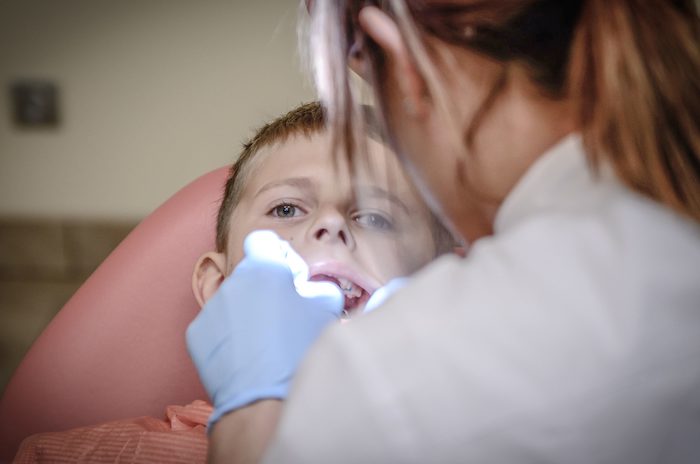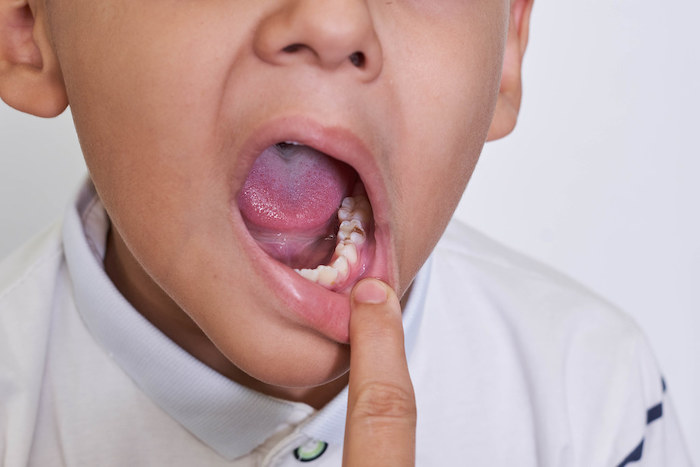Oral Health: 7 Reasons to Consider Kid's Root Canal Treatment

Although it might sound scary, a root canal treatment procedure for kids may be necessary to ensure your child has good oral healthy and the most beautiful smile possible. There are many reasons to get your child a root canal, and you should be sure to discuss them with your periodontist.
Children's teeth have a pulp that nourishes them. Whenever this pulp is injured, the tooth will not function properly and may even fall out. In addition to saving your child's teeth, root canals are a good option for preserving the teeth.
Performing a root canal can save your child's primary tooth, and may be essential for their overall good and healthy teeth. These procedures also preserve the alignment of teeth, which is necessary for efficient chewing and beautiful natural smiles.
Kids’ Root Canal Treatment
A root canal, also known as endodontic treatment, is a common dental procedure. This procedure removes the pulp located at the center of the tooth.
Although children will eventually lose their primary teeth, they can still have root canals. This is a good option if the tooth is not decayed. A pediatric dentist may also perform a root canal if a tooth is infected and needs treatment.
During a root canal, the dentist will insert special tools into the tooth's root, and a tool is then used to remove the diseased pulp. A dentist may use an x-ray to confirm the diagnosis.
After the procedure, the dentist will clean and fill the tooth root with a filling. The filling is usually made from a material absorbed into the tooth's underlying structure.
Benefits of Root Canal Treatment for Children

Some of the oral health benefits and reasons why you should consider root canal treatment for your child include:
1. Root Canals Prevent Tooth Infection
Children are at risk of developing tooth decay and dental infections that can be excruciating. Left untreated, infections can lead to dental abscesses and life-threatening conditions.
It is imperative to address any decay or damage to the teeth as early as possible to avoid the risk of these complications. To determine if a child is at risk of developing root canals, schedule an appointment with a periodontist as early as possible.
A root canal treatment in kids removes the damaged pulp from the tooth and cleans it of bacteria and infection. Pediatric dentists will use a partial root canal when the infection is limited to the upper part of the tooth.
2. Ensures Permanent Teeth Stay Healthy
A root canal is a common treatment procedure for decayed or damaged teeth. While baby teeth are not usually replaced, they should still be extracted as soon as possible.
Deterioration of the pulp can cause a tooth to fall out or shift. In addition to preventing tooth loss, root canals can help preserve a child’s natural smile.
During the healing process post root canal treatment, your child will need to maintain proper oral hygiene. Ensure that your child brushes their teeth twice a day, floss once a day, and use an antiseptic mouthwash to clean the area.
Afterward, you'll have a follow-up appointment with the dental practitioner and resume their regular dental visits.
3. Relieve Toothaches

Periodically check children’s teeth to detect issues and seek immediate treatment.
While root canals aren't always necessary, they can be a good option for children with cracked teeth and toothaches. Baby teeth, for example, are essential for the proper development of the jaw. Losing them prematurely can lead to speech and eating problems, as well as pain.
Similarly, baby teeth also serve as guides for the permanent teeth, so losing them prematurely can cause toothache as permanent teeth erupt. Toothaches caused by premature tooth loss can not only lead to costly orthodontic treatment, but also lead to other problems as well.
If a child has pain due to a cracked tooth or losing baby teeth prematurely, schedule an appointment with a reputed and well-experienced periodontist for the best root canal treatment for kids or any other treatment the dentist deems necessary.
A cracked tooth can allow bacteria to reach the pulp inside the tooth, destroying the tooth's supporting bone and becoming infected.
4. Root Canals Last a Lifetime
A root canal can be avoided with proper home care, such as brushing and flossing twice a day. But if a root canal is necessary, visit a reputed dental implants center where experts can perform the procedure. Most root canal treatments last a lifetime.
Although root canals can last a lifetime, the process may require additional visits to the dentist's clinic. Contact your dentist right away to know more about root canal for your child. Root canal therapy effectively removes infection and pain and can save the tooth.
You will also need to have a follow-up visit for your kids a few weeks after the procedure to ensure that the teeth are healing correctly.
5. Retain Natural Tooth Structure
Another benefit of root canal for kids is that they can retain their natural tooth structure. The pulp of a child's tooth is very sensitive and can develop into a cavity. If you don't treat the decay early, it can lead to painful root pulp that damages the natural tooth structure.
A root canal can save a child's tooth and natural tooth structure by preventing it from falling out or affecting adjacent teeth and gums. If you are worried that your child is prone to tooth decay or infection, a root canal is an excellent treatment to consider.
6. Help Proper Jaw Development
Primary teeth are crucial for the development of the jaw, and they also act as guides for the development of adult teeth. Losing these teeth early can cause them to emerge incorrectly and require expensive orthodontic treatment.
Regular dental check-ups will help to identify any abnormal teeth and jaw development issues early, such as your child's developing bite, at which point root canal may be necessary to address the issues and keep your child’s teeth healthy.
Remember that a child's diet can also affect healing. If you follow your pediatric dentist's instructions, the root canal will go smoothly, and your child will be better in no time.
7. Better Overall Oral Health
A root canal can save your child's primary teeth by removing infection from the pulp tissue. This procedure also prevents bacteria from entering the tooth thus prevents future dental issues.
Moreover, the procedure prevents tooth cavity that may lead to serious infection. Without a root canal, pus can build up and cause an abscess, leading to pain and further damage.
Children often feel pain when they have a tooth decay, damaged/cracked teeth, and dental infections. Root canal for kids can relieve that pain and restore their good dental health.
The treatment may even prevent a child from needing a tooth extraction. If the child doesn't have permanent teeth, a baby tooth root canal treatment procedure may be the best option. A baby tooth root canal treatment may save the tooth from extraction.
What’s more, root canal for kids is painless and inexpensive, and it usually results in teeth that look and function naturally just like normal healthy teeth. In other words, root canal helps your child maintain their overall good oral health.
Conclusion
Considering all those benefits of root canals for kids, it’s a no briner to consult your doctor and get it done for your kids as necessary and in a timely manner. The benefits of root canal for kids done by a qualified and experienced dentist are usually well worth the price.
If you're concerned that your child might not tolerate the treatment, be sure to consult a qualified periodontist for help. They specialize in treating young children and adolescents.




















